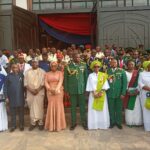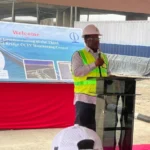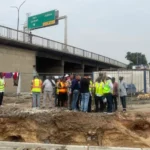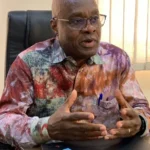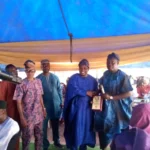By EricJames Ochigbo
Speaker of House of Representatives, Rep. Tajudeen Abbas, has pledged the commitment of the house to passing appropriate legislation that will foster digital learning and technical education in the country.
Abbas gave the pledge at a public hearing organised by the House Committee on Federal Polytechnics and Higher Technical Education in Abuja on Monday.
The hearing was on four bills seeking to establish the National Vocational Centre; Federal Artificial Intelligence Institute, Aliade, Benue; Federal College of Science and Technology, Askira-Uba, Borno and National Institute for Technical and Vocational Education, Wamba, Nasarawa State.
Represented by Rep. Auwalu Gwalabe (APC-Bauchi), Abbas said that the initiative required a strong collaboration on the side of the government and all stakeholders.
He said that polytechnic education would continue to be relevant to the Nigerian economy for the much-needed industrial development.
According to him, there has been an increasing recognition of the important role that science, technical and vocational education plays in national development.
Abbas said with the emergence of new technologies, such as artificial intelligence, it was no longer sufficient for educational institutions to merely impact theoretical knowledge.
He said that youths must be equipped with practical skills that would enable them to thrive in an ever-evolving technologically-driven job market.
“We are hoping that the eventual establishment of these proposed science and technical institutions will provide access to quality technical education.
“We are also hoping that it will address the skills gap by equipping our graduates with employable skills, promote innovation and entrepreneurship as well as support the current efforts of government to diversify the economy.
“These proposed institutions will serve as beacons of excellence – providing qualitative education that meets international standard, while also being tailored to meet local needs.
“Therefore, today’s hearing aligns seamlessly with our legislative agenda as mentioned earlier, aimed at enhancing the educational framework within Nigeria.
“We recognise that in an increasingly competitive global environment, it is imperative that our youths have the relevant skills and knowledge,” he said.
The speaker expressed the committed of the house to ensuring access to quality education as well as improving educational infrastructure and teacher quality.
Abbas said that the public hearing was a reflection of the desire and commitment of the house to prioritise technical and vocational education as part of the ongoing social sector reform and development of the present administration.
He said that reforming and modernising science and technical education were critical steps toward promoting skill acquisition and empowering youths to contribute meaningfully to the economic growth and development of the country.
According to the speaker, the ongoing fight against insecurity must, as a matter of necessity, consider the provision of functional education for students and youths to ensure that they are gainfully engaged.
Earlier, the Chairman of the committee, Rep. Fuad Laguda (APC-Lagos), said that the bills were designed to improve Nigeria’s educational development and promote sustainable human capital development necessary for a self-reliant society.
Laguda said there was the need to prioritise the advantages of Science, Technology, Engineering and Mathematics (STEM) in driving economic growth.
The lawmaker said that the passage of the bills would ensure that the workforce was technologically empowered.
According to him, it will be used to tackle the issues of unemployment, wealth creation, poverty reduction and insecurity, while it will also as a veritable tool in curbing youth restiveness.
“The main objective of establishment of vocational, entrepreneurship and technical skills acquisition institutions in Nigeria is to train technicians and middle-level personnel who will act as catalysts for rapid industrialisation and development of the real sector of the economy.
“There is the need for all stakeholders here present to be dedicated and committed to purposeful deliberations as well as make positive inputs and opinions on all the contending issues of the bills, to further enrich the content and intendment of the proposed laws.
“The contributions of all the stakeholders are important for the success of these bills which seek to address contingent economic issues in Nigeria,” Laguda said. (NAN) (www.nannews.ng)
Edited by Ifeyinwa Okonkwo and ‘Wale Sadeeq

